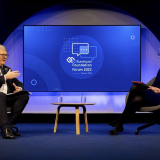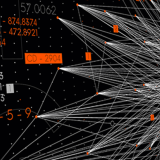EU context
Los legisladores necesitan adquirir conocimientos que les ayuden a abordar cuestiones sobre una regulación eficaz; sobre cómo garantizar la protección social en su más amplio sentido y equilibrar las demandas de empresas, sociedades y personas a la hora de explotar las grandes posibilidades que la digitalización ofrece.
La Comisión Europea aprobó su estrategia de Mercado Único Digital para Europa en 2015 y la identificó como una de sus prioridades políticas. La estrategia puede ofrecer oportunidades digitales a ciudadanos y empresas y aspira a consolidar el puesto de la UE como líder mundial en términos de economía digital. Su objetivo consiste en aumentar el acceso a la información, generar empleos para aquellas personas que posean las habilidades digitales adecuadas y transformar los servicios públicos. Como la economía colaborativa se está extendiendo en la UE, la Comisión trata de fomentar el desarrollo de nuevos e innovadores servicios, a la vez que garantiza las medidas de protección apropiadas. La Comunicación sobre la Agenda Europea para la economía colaborativa de la Comisión en 2016 esclarece las recomendaciones de normas y políticas en este ámbito para ciudadanos, empresas y Estados miembros.
La labor de Eurofound
Eurofound está considerando las repercusiones más amplias para las condiciones laborales, la normativa laboral y más allá de la escala y del alcance crecientes de las tecnologías digitales en el mercado laboral.
Se está analizando el impacto laboral de las tecnologías innovadoras en los servicios. Eurofound también estudia las consecuencias de la economía de las plataformas (en particular, del trabajo en régimen de externalización abierta) para el mercado laboral. Además, se continúa con las investigaciones sobre las condiciones de trabajo y empleo de los trabajadores móviles de TIC.
Se indagará sobre el tipo de trabajo y de empleo en la era digital, haciendo hincapié en:
Aportaciones fundamentales
Un informe conjunto con la Organización Internacional del Trabajo (OIT) sobre el trabajo en cualquier momento y en cualquier lugar ha tenido en cuenta el impacto del teletrabajo y del trabajo móvil mediante TIC en los aspectos seleccionados de las condiciones laborales.
La serie de seminarios de la Fundación de Eurofound constituye una oportunidad para que gobiernos, sindicatos y trabajadores traten el desarrollo de las políticas de la UE relacionadas con la sociedad, el empleo y el trabajo. En 2016, la serie de seminarios de la Fundación se centró en el impacto de la digitalización en el trabajo y en reforzar las agendas nacionales para una mejor implementación de los cambios digitales.

























